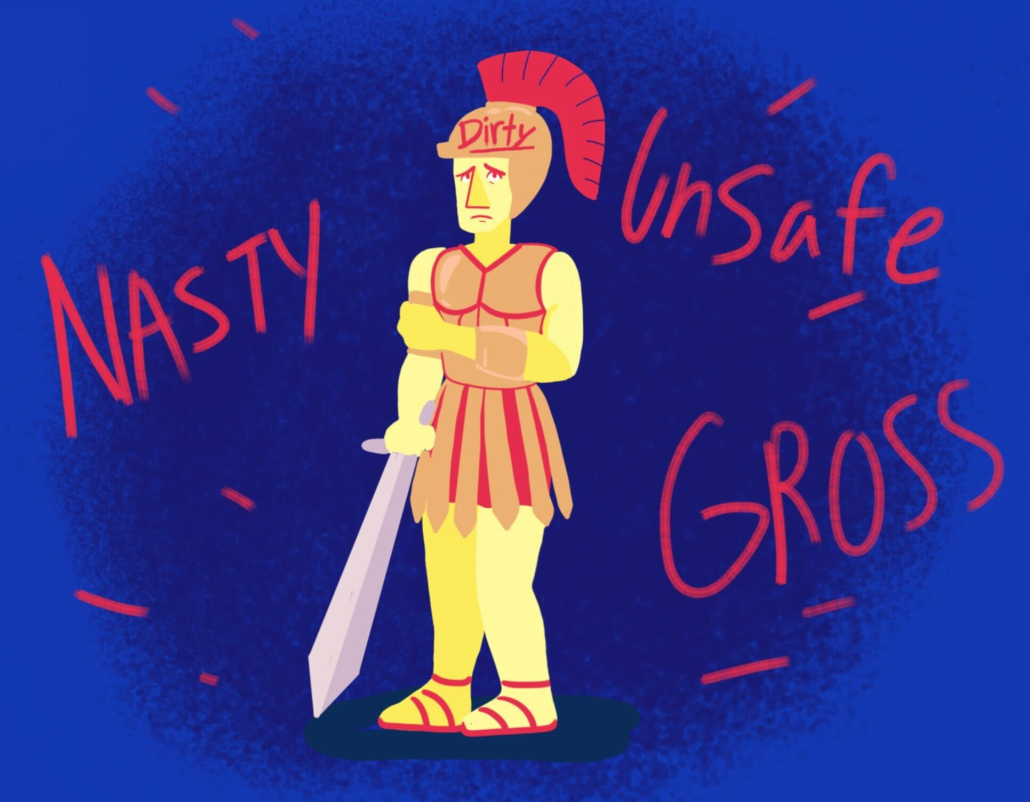USC must provide more support for students living with STIs
The Centers for Disease Control and Prevention reports nearly 20 million new sexually transmitted infections per year, particularly among teens and adults in their early 20s. For example, more than a million Americans have human immunodeficiency virus, unbeknownst to approximately 15% who need immediate testing. Gonorrhea has increased by 92% since 2009, while chlamydia infections experienced a 30% increase between 2015-2019.
Despite these statistics, STIs are not an alarming issue in the United States and lack public acknowledgement. The Women Health’s Policy notes only one-third of Americans are aware that STIs have become more common since 2010; barely 13% know that half of the people in the U.S. will eventually get one and about 54% know someone living with an STI. Additionally, lawmakers pass little legislation to combat the disease, resulting in large populations who receive STI diagnoses across the U.S., particularly in the Southwest.
Moreover, those infected with STIs face significant social stigmas. When someone is diagnosed with an STI and another person finds out, they could react with prejudice because they perceive the other as “promiscuous” and “dirty.”
Jenelle Marie, the founder of the STI Project, writes about her life as a woman living with an STI: “Diagnosed and shamed by my family doctor … I would never have a normal ‘sex life,’ a loving partner, or a healthy relationship ever again … I was cast out of the church and labeled a harlot, made to sleep separately from friends during overnight stays for fear of transmission, and called a bevy of names.”
Those who live with HIV experience overt discrimination from society. According to a report published by the Joint United Nations Programme on HIV/AIDS, 20% of people living with HIV have been denied medical care. One out of four individuals has faced discrimination in healthcare settings.
Because of these alarming statistics, it is vital to consider the number of people with STIs on college campuses. Twenty-five percent of all students have an STI, with human papillomavirus, chlamydia and herpes being the most common. USC must address the stigmas associated with STIs and assist its students suffering from them by offering overarching support.
USC can start by offering support groups for those infected with STIs. For instance, peer support specialist Sean Galla of MensGroup writes how genital herpes can conjure shame and recklessness. He emphasizes that “a herpes support group is a safe space where you can share your concerns, worries and experiences to create a mutually beneficial environment for all members.”
Additionally, a study by the National Center for Biotechnology Information discovered that support groups for people living with HIV allow disclosure and healing, decrease depression and raise self-esteem. Support groups also further augmented coping skills and improved retainment in HIV care.
Moreover, if someone is reluctant to engage in an in-person support group, online groups are available for those concerned with their privacy. USC could offer online chatroom courses or Zoom sessions focusing on a specific STI.
USC could also help students by promoting digital applications that detect STIs between two partners. The Safely app directly delivers STI information from health centers and doctors to the patient. Similar to how TrojanCheck operates, a person can schedule treatment and testing across almost 30,000 locations.
The Safely app also normalizes STI statuses so people can ask about their partners’ status and provide their health information to partners on an easily accessible platform.
With total out-of-pocket testing costing between $400 and $500 and the possibility of insurance companies opting out of coverage and the coronavirus pandemic overwhelming many health clinics, the Safely app can halt the spread of STIs and allow sexually active individuals to keep their partners safe from infection.
In addition, STIs disproportionately affect people of color, who are also less likely to be connected to health treatments. African Americans diagnosed with HIV have a lower chance of receiving care, obtaining antiretroviral medicine and receiving proper infection suppression. Historically, Asians and Pacific Islanders’ mortality rate from viral Hepatitis has been very high. In 2018, out of the 1,649 Americans who died from a Hepatitis B-related death, approximately 46% were of Asian and Pacific Islander descent.
Therefore, USC must invest in these resources to protect its student body, which comprises groups vulnerable to STIs. Ultimately, it must prevent the spread of STIs and provide the necessary services to help Trojans prosper on campus.


